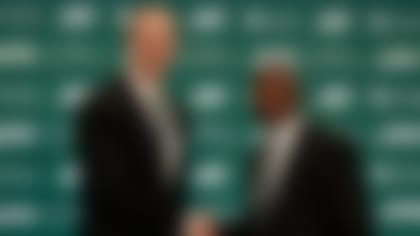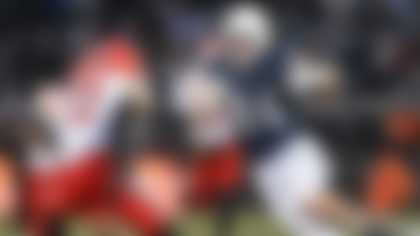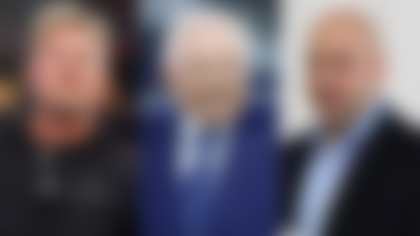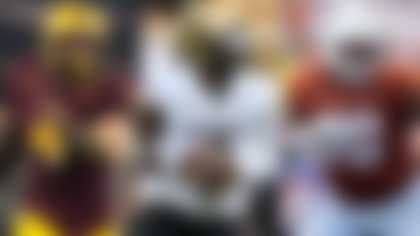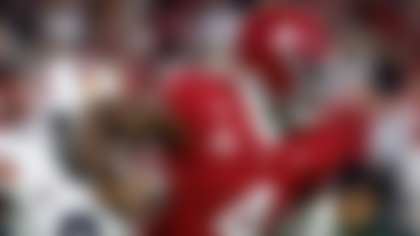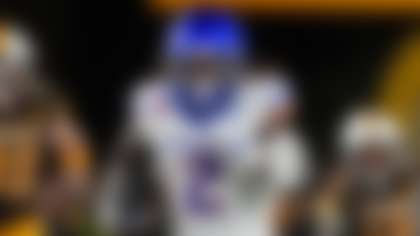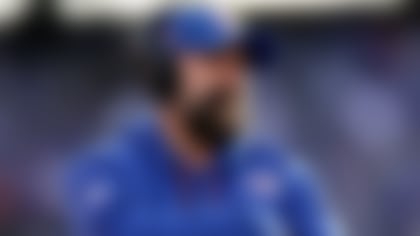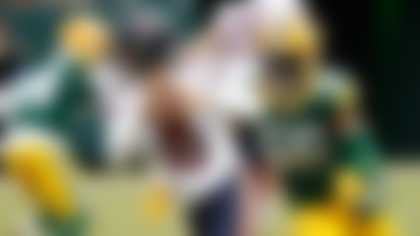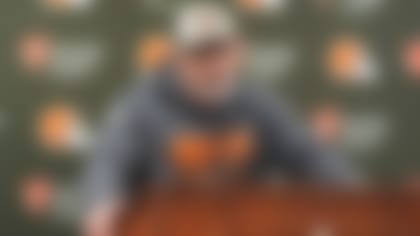When James Harrisonannounced his retirement from the NFL on Monday after 15 seasons, it was not the first time -- or even the second -- he had contemplated walking away from the sport that had occasionally vexed him, even as he dominated it. This, though, was the only time he could go on his own terms, having won two Super Bowls in Pittsburgh -- one of them in large part because of a stunning play he authored -- and having nearly won a third in New England last season, when he still thought he might have a few more seasons left in his body, before the knowledge he had already missed enough time at home with his children while he spent hundreds of hours and thousands of dollars preparing his body for the rigors of more games.
Harrison's determination to do things his way defined his career as much as the scowl that was his public persona. His late high school coach had once said that Harrison was not going to do what you wanted him to do. He was going to do what he wanted to do. That was to quiet the naysayers in his life, and there were a lot of them, starting with the Pee Wee coach who informed Harrison's dad that his son wasn't trying hard enough, and continuing through a professional career that began when Harrison went undrafted. Much like his teammate of a few months, Tom Brady, Harrison was driven by a fierce desire to prove his doubters wrong, even after he had been to the NFL mountaintop.
Brady camouflages his will and fury with a mega-watt smile. Harrison didn't bother with such niceties or even some of the conventions of team play. At practically every stop, he sometimes drove coaches crazy. There was an arrest following a domestic dispute with the mother of his son after they reportedly argued about having the child baptized. He challenged a high school coach to a fight. At Kent State as a walk-on, he clashed early with coach Dean Pees, who demanded he get his grades up. When he did, he wrote his new grade point average on every coach's board -- and then grew so close to Pees that he would show up unannounced at his home and ask his wife what was for dinner. Harrison thought about quitting to get a regular job after he bounced from practice squad to NFL Europe, from team to team and back again. When he struggled to learn Dick LeBeau's defense in Pittsburgh, he would stop in the middle of practice plays and demand to be taken off the field.
In 2010, when he unintentionally became the face of the NFL's early crackdown on hits to the head after a collision with Cleveland receiver Mohamed Massaquoi, he was so furious about the $75,000 fine and the signal from the league that he was doing things wrong that his first instinct was to quit. His former Steelers teammate James Farrior later said he tried to persuade Harrison to come over to his house before he did anything drastic.
When it became clear last season that the Steelers were keeping him only for an emergency and that he was unlikely to play, he all but quit on the team, with his teammates accusing him of leaving the stadium as soon as he found out he was inactive for a game and not practicing or attending meetings. Harrison admitted he asked for his release multiple times. It was a jarring end to a storied time in Pittsburgh, one that included the 2008 Defensive Player of the Year award and a 100-yard interception return for a touchdown in Super Bowl XLIII that helped win the championship.
But it also allowed Harrison to script his own exit from the game that seemed to suit him so well, an irony since he had been told since college his body type was unsuitable -- lacking the height to be a linebacker and the heft to play on the line. With the help of wristbands, he learned LeBeau's blitzes and became a quarterback terror, the all-time sacks leader in a place called "Blitzburgh" with an underappreciated ability to drop into coverage. He could get lower than those trying to block him, and he was fast (he ran the 100 meters in high school) and athletic (he could walk on his hands). He was, for about a five-year stretch, the most intimidating defensive player in football. He finishes with 84.5 sacks, 34 forced fumbles and eight interceptions.
"I watched him ruin damn games," said former Baltimore Ravens linebacker Ray Lewis.
Harrison did that one last time in January's AFC Championship Game, when Harrison came screaming off the edge to team with Kyle Van Noy to force a Blake Bortles fumble that all but ended the Jacksonville Jaguars' chances.
Even after that, as he had throughout his career, Harrison ruminated on all the young players coming up behind him trying to take his job, on all the higher draft picks who had passed through the NFL while he had remained. His career had come the hard way, and when Farrior said long ago that Harrison played angry, it was a compliment. Harrison was never as mean as his face made him look -- he, for instance, beamed with his children -- but he was mad about football a lot of the time, and he made the rest of the NFL pay for it.
"You always want to prove people wrong, you don't want to make them right, especially when they're telling you something you can't do," Harrison said just days before he left for the Super Bowl last season.
Who, exactly, did he still want to prove wrong, this late in his own personal game?
"Anybody that doubts any of my abilities."
Follow Judy Battista on Twitter @judybattista.

